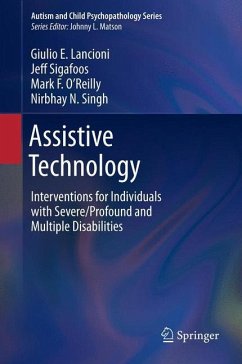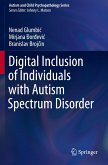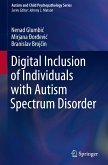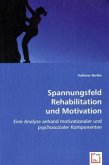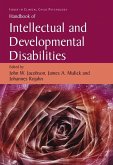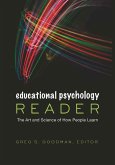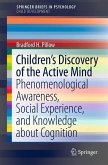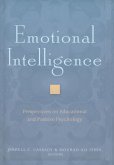For people with severe/profound and multiple disabilities, managing the basic necessities of daily life often poses myriad challenges. Despite great odds, advances in assistive technology are making a difference in these individuals' lives. Advances in microswitches, voice outcome communication aids, and computer-based systems are creating new opportunities for living independently, improving basic life skills, and reducing problem behaviors among individuals with combined motor, sensory, and intellectual disabilities.
This unique volume examines how education and rehabilitation can improve the lives of even those individuals most affected by severe/profound and multiple disabilities. Interventions currently in use and in experimental stages are surveyed in terms of how they work and their applicability to clients with various needs. In addition, it examines the characteristics of developmentally disabled populations and offers guidelines for choosing suitable technologies. It presents empirical evidence on the advances in improving interaction with caregivers, control of the home environment, handling self-care tasks, and other core skills.
Assistive Technology examines interventions that are innovative, respectful of the dignity of clients, and practical for ongoing use, including:
- Microswitches in habilitation programs.
- Speech-generating devices for communication and social development.
- Instructional technology for promoting academic, work, and leisure skills.
- Assistive technology for promoting ambulation.
- Orientation systems for promoting movement indoors.
- Assistive technology for reducing problem behaviors.
A state-of-the-art guide to a growing field, Assistive Technology is an invaluable resource for researchers, clinicians, graduate students as well as clinicians and allied professionals in developmental psychology, rehabilitation and rehabilitative medicine,learning and instruction, occupational therapy, speech-language pathology, and educational technology.
This unique volume examines how education and rehabilitation can improve the lives of even those individuals most affected by severe/profound and multiple disabilities. Interventions currently in use and in experimental stages are surveyed in terms of how they work and their applicability to clients with various needs. In addition, it examines the characteristics of developmentally disabled populations and offers guidelines for choosing suitable technologies. It presents empirical evidence on the advances in improving interaction with caregivers, control of the home environment, handling self-care tasks, and other core skills.
Assistive Technology examines interventions that are innovative, respectful of the dignity of clients, and practical for ongoing use, including:
- Microswitches in habilitation programs.
- Speech-generating devices for communication and social development.
- Instructional technology for promoting academic, work, and leisure skills.
- Assistive technology for promoting ambulation.
- Orientation systems for promoting movement indoors.
- Assistive technology for reducing problem behaviors.
A state-of-the-art guide to a growing field, Assistive Technology is an invaluable resource for researchers, clinicians, graduate students as well as clinicians and allied professionals in developmental psychology, rehabilitation and rehabilitative medicine,learning and instruction, occupational therapy, speech-language pathology, and educational technology.
"[The book] is unique in that it provides a review of the academic literature concerning the evidence about the use of assistive devices designed for a population that can provide the most challenges... This text can be of significant assistance to the professional and interdisciplinary team that is working to provide services for an individual with serious and compounding challenges associated with multiple disabilities."
Steven R. Pruett
PsycCRITIQUES, September 11, 2013, Vol. 58, Release 37, Article 9
Steven R. Pruett
PsycCRITIQUES, September 11, 2013, Vol. 58, Release 37, Article 9
From the reviews:
"This book focuses on two large groups: students who have a typical level of intellectual functioning combined with motor or sensory-motor and communication disabilities, and individuals with severe intellectual disabilities who may or may not have motor, sensory/motor and communication disabilities. ... This book is a valuable reference for practitioners in the field as it not only describes the different ways that assistive technology can be used, but also what intervention outcomes can be expected for specific populations." (Sandra E. James, Journal of child and Family Studies, Vol. 23, 2014)
"[The book] is unique in that it provides a review of the academic literature concerning the evidence about the use of assistive devices designed for a population that can provide the most challenges... This text can be of significant assistance to the professional and interdisciplinary team that is working to provide services for an individual with serious and compounding challenges associated with multiple disabilities."
Steven R. Pruett
PsycCRITIQUES, September 11, 2013, Vol. 58, Release 37, Article 9
"This book focuses on two large groups: students who have a typical level of intellectual functioning combined with motor or sensory-motor and communication disabilities, and individuals with severe intellectual disabilities who may or may not have motor, sensory/motor and communication disabilities. ... This book is a valuable reference for practitioners in the field as it not only describes the different ways that assistive technology can be used, but also what intervention outcomes can be expected for specific populations." (Sandra E. James, Journal of child and Family Studies, Vol. 23, 2014)
"[The book] is unique in that it provides a review of the academic literature concerning the evidence about the use of assistive devices designed for a population that can provide the most challenges... This text can be of significant assistance to the professional and interdisciplinary team that is working to provide services for an individual with serious and compounding challenges associated with multiple disabilities."
Steven R. Pruett
PsycCRITIQUES, September 11, 2013, Vol. 58, Release 37, Article 9

